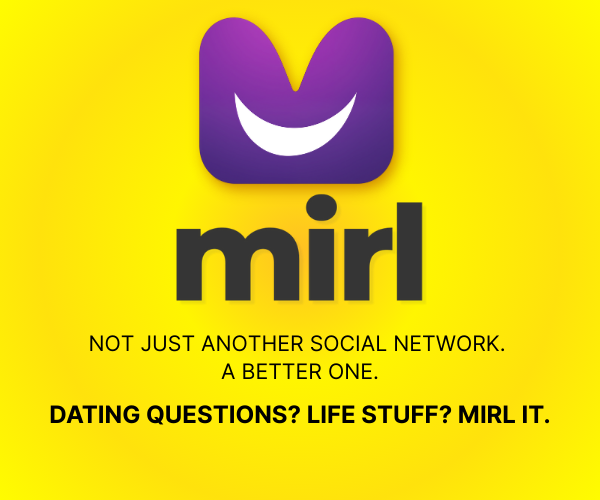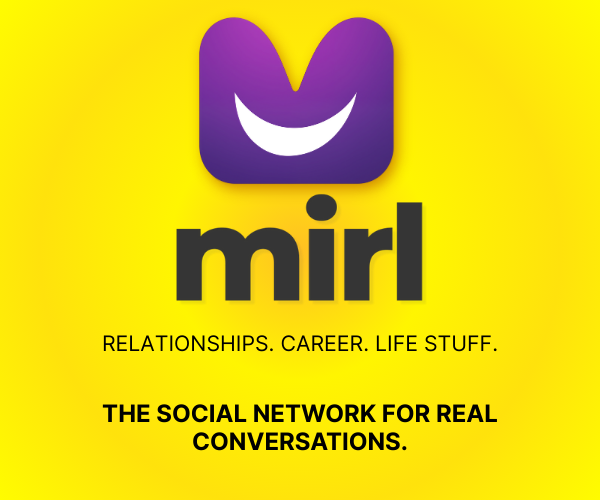Bare Minimum in a Relationship: 34 Signs You’re Stuck & Steps To Get Out

Are you doing all the work in love? Here’s how to spot the bare minimum in a relationship, and what to do when you’re getting crumbs, not care.
Do you ever feel like you’re not really in a relationship, but in some vague version of a bare minimum in a relationship? Technically. They haven’t cheated, ghosted, or committed any capital-R Red Flag offenses. But still, you’re stuck refreshing your texts, rereading your last convo, wondering if “I’m just tired” is code for “I’m no longer trying.”
You plan the dates. You initiate the talks. You carry the emotional weight of the connection while they nod, shrug, and occasionally toss you a heart emoji like a crumb to keep you from walking. You’re not in a toxic relationship, but it’s not nourishing either. It’s… meh. Lukewarm. Like a hug with one arm.
Some call it lazy love. Others call it emotional breadcrumbing. But whatever name you slap on it, the reality is this: when someone gives you the bare minimum in a relationship, they’re giving you just enough to stay, but never enough to truly feel loved.
[Read: Breadcrumbing: What It Is, 28 Signs to See It & Respond and Why People Do It]
And honestly? That kind of emotional purgatory can be more confusing than a full-blown breakup.
What Does Bare Minimum in a Relationship Actually Mean?
Giving the bare minimum means showing up in a relationship with the least possible effort, just enough to claim the title of “partner,” without actually doing the work of loving, supporting, and growing with someone.
They reply to your texts, but only hours later. They’ll hang out, but only if it fits their schedule. They remember your birthday… maybe. They’re not mean, but they’re not meaningfully involved either.
It’s a kind of passive detachment. A performative partnership. And over time, it turns love from something electric and exciting into something beige and barely-there.
Psychologically, this often stems from avoidant attachment styles, where a person distances themselves emotionally as a defense mechanism to protect their autonomy or avoid vulnerability. [Read: Avoidant Attachment Style: The Types, 32 Symptoms & How to Love One]
📚 Source: Attached by Amir Levine & Rachel Heller, 2010
According to Attachment Theory, partners with avoidant tendencies may provide the minimum required gestures of intimacy without ever fully investing in emotional closeness. And if you have an anxious attachment style? You’re more likely to stick around, trying harder and harder to win that affection, reinforcing a painful cycle.
📚 Source: Mikulincer, M., & Shaver, P. R. (2007). Attachment in Adulthood
The bare minimum isn’t always obvious at first. In fact, it can feel like stability if you’ve experienced chaos. But slowly, it starves your emotional needs while pretending to be a relationship. And that’s where the real damage begins.
The Signs You’re Getting the Bare Minimum in a Relationship
Sometimes, we don’t realize how little we’re getting until we put it side by side with how we want to feel. Bare minimum behavior isn’t always loud, it can look polite, casual, even normal.
But if you’re reading this list and nodding along a little too often, you might be settling for crumbs in a relationship that should be a feast.
1. You’re the one always reaching out
You’re constantly texting first, planning the hangouts, and keeping the conversation alive. If you stopped making an effort, the entire relationship would probably fade out.
When it’s one-sided, it’s not love, it’s emotional labor without backup. It leaves you wondering if the connection exists only because you refuse to let it die. [Read: How to Keep a Text Conversation Going When You Have Nothing to Say]
2. They give you surface-level responses
They never really answer with depth, just “haha,” “idk,” or “you’re overthinking.” You open up, and they keep it vague. A real connection involves curiosity, not conversational ghosting in real-time.
If their replies are more generic than a Magic 8 Ball, you’re not connecting, you’re narrating your life to someone who isn’t listening.
3. They never make plans first
If you didn’t suggest dinner, dates, or calls, would they even happen? You feel like the sole social coordinator in a relationship that’s supposed to be mutual.
Planning should be shared, not your full-time job. You deserve someone who looks forward to seeing you, not someone who simply agrees to your calendar. [Read: The Decisions You Should Never Let Your Partner Make For You]
4. You feel like an afterthought
They reach out when they’re bored, lonely, or need something, but not because they genuinely miss you. It feels like you’re the Plan C in their life, not someone they’re excited about. And when love feels like a placeholder, it stops feeling like love at all.
5. Emotional intimacy is missing
When you talk about something real, your fears, dreams, even your day, they respond with silence or switch topics.
You feel emotionally exposed while they stay hidden behind a wall of detachment. It’s like speaking into a void that only echoes your own vulnerability back at you. [Read: Sexual Intimacy: The Meaning, 20 Signs You’re Losing It & Secrets to Grow It]
6. Dates are last-minute or lazy
Every get-together is a “wanna come over?” with no real effort or creativity. You’re stuck in a loop of microwave pizza and couch time.
Romance doesn’t require a big budget, but it does require intention. If every date feels recycled, so will the relationship.
7. They’re not consistent
Some days, they’re sweet and present. Other days, it’s like you barely exist. That emotional inconsistency keeps you hooked on crumbs, hoping for the next rare dose of warmth. Love shouldn’t feel like a slot machine that only sometimes pays out.
8. You feel anxious, not secure
Instead of feeling seen and safe, you’re constantly wondering if they’re pulling away. Your nervous system is in fight-or-flight mode, not cuddle-and-communicate mode. If the connection brings more anxiety than comfort, it’s not love, it’s survival.
9. They’re stingy with compliments or affection
You shouldn’t have to beg for a hug or fish for a compliment. If affection is rare or transactional, it’s not real emotional nourishment, it’s emotional rationing.
You deserve to feel wanted, not like you’re constantly auditioning for affection.
10. They avoid hard conversations
You try to bring up how you feel, and suddenly they’re tired, busy, or scrolling TikTok. They shut down the moment things get serious, leaving you to carry the emotional weight alone. Silence in the face of conflict isn’t peace, it’s neglect wearing a polite disguise.
11. They don’t support your goals or growth
They act indifferent when you talk about a promotion, a dream, or something you’re passionate about. It’s not that they disagree, they just don’t care.
A partner doesn’t have to be your cheerleader 24/7, but they should at least be clapping from the sidelines.
12. You’re constantly making excuses for them
You find yourself explaining away their behavior to friends or even to yourself. “They’re just not a phone person.” “They’re stressed lately.” But when you’re always justifying their lack of effort, it says more about your unmet needs than their quirks.
13. They rarely show appreciation
Whether it’s for something small like grabbing their coffee or something big like supporting them through a crisis, they rarely say thank you.
When appreciation is absent, resentment grows in its place. Gratitude shouldn’t feel like a reward, it should be routine. [Read: 44 Warm Ways to Say “I Appreciate You” & Show Appreciation without Words]
14. They forget the important stuff
They don’t remember your big interview, your sister’s name, or even your favorite movie. You’ve told them more than once, but it doesn’t stick. Forgetting details might seem minor, but it adds up to a feeling of being invisible.
15. You don’t feel emotionally safe
You censor yourself around them because vulnerability seems to make them uncomfortable, or worse, annoyed. If you can’t be messy, sad, honest, or real without fear of being dismissed, it’s not a safe space. It’s a performance.
16. They only show up when it benefits them
They’re super attentive when they want something, comfort, validation, or even sex, but disappear when it’s about your needs. That’s not love, that’s convenience disguised as connection. [Read: Why Do Guys Come Back When You Ignore Them? The Mind Games of Men]
17. You always feel one step away from a breakup
You walk on eggshells and constantly worry you’ll say or do the wrong thing. Relationships have their moments, but they shouldn’t feel like you’re always holding your breath, bracing for it to end. [Read: How to Stay Away From Someone & Know the Signs They’re Bad For You]
18. Your emotional needs feel like a burden
When you express something you need, more affection, quality time, deeper communication, it’s met with sighs or eye-rolls.
Love isn’t about demanding perfection, but you shouldn’t feel guilty for simply having needs. [Read: How to Get Your Crush to Like You: 22 Ways to Make Them Fall Hard]
19. You feel lonelier with them than without
Being in their presence doesn’t take the edge off your loneliness, it intensifies it. That aching silence when you’re sitting next to someone who’s emotionally unavailable is lonelier than any night alone. [Read: 34 Things Guys Think About After You Sleep with Them for the First Time]
20. You’ve Googled if this is normal
The fact that you’re here, reading this list, says something. When we sense we’re being starved emotionally, our instincts kick in to look for clarity.
If your gut keeps whispering “this isn’t it,” trust it, it’s usually wiser than your heart.
What a Healthy Bare Minimum Should Look Like
Let’s be clear: no one’s expecting perfection. Relationships ebb and flow. People have off days, bad weeks, and messy seasons. But even at its most basic, love should still feel safe, seen, and steady.
Here’s what the actual bare minimum in a healthy relationship looks like: [Read: 38 Signs & Traits of a Happy, Healthy Relationship & What It Should Look Like]
1. Mutual respect
You don’t belittle each other, talk over one another, or treat the other like an afterthought. Even in conflict, there’s a foundation of basic human decency.
2. Consistent communication
They don’t disappear for days or dodge tough talks. You may not always agree, but you know where you stand, and that matters more than constant harmony.
3. Emotional availability
You can bring up feelings without being dismissed. Vulnerability isn’t punished or ignored, it’s welcomed, even if it’s awkward at first. [Read: How to be Emotionally Available: 17 Ways to Open Up to Love & Life]
4. Effort and reciprocity
You both initiate. You both check in. You both show up in your own ways, whether through words, time, physical affection, or presence. It’s not always 50/50, but it balances out.
You don’t have to be carbon copies of each other, but you want the same kind of life, and you see each other in that future. It’s not just about now, it’s about next.
6. Accountability and repair
When one of you messes up (and you will), there’s space to own it, apologize, and grow. Mistakes aren’t weaponized, they’re used to strengthen the bond.
These are the basics. Not the bonus round. And if your relationship doesn’t meet them, it’s not that you’re too needy, it’s that you’re finally ready for real.
The Emotional Toll of Bare Minimum Love
Being in a bare minimum relationship doesn’t just leave you unsatisfied, it can do real damage to your mental and emotional health. The most dangerous thing about these relationships is how quietly they unravel your sense of self.
[Read: Sense of Self: What It Is, 36 Signs, Tips & Steps to Raise It and Feel Great]
You start to believe that asking for connection is “too much.” You shrink your needs to fit what little is offered. Over time, this constant deprivation leads to self-doubt, low self-esteem, and a distorted view of what love should even look like.
Your body feels it too, tension, anxiety, fatigue. According to research from the University of Michigan, relationships that lack emotional support can contribute to chronic stress, which increases your risk of depression and even heart issues.
📚 Source: Whisman, M. A., & Baucom, D. H. (2012). Intimate Relationships and Depression
Eventually, emotional neglect starts to feel normal. You gaslight yourself into thinking you’re lucky to get what you get. But just because something doesn’t leave bruises doesn’t mean it isn’t hurting you.
The toll of staying too long in something that feeds you crumbs is this: you forget what it’s like to feel full. And that’s not love, it’s starvation in disguise.
Why Do We Stay When It Feels So Empty?
Staying in a bare minimum relationship often isn’t about love, it’s about fear. Fear of being alone. Fear of starting over.
Fear that maybe, just maybe, this is the best it gets. And if you grew up with emotionally unavailable parents, this kind of relationship might even feel familiar. Safe, in a sad, twisted way.
[Read: Fear of Being Single: Anuptaphobia, 31 Signs You’re Afraid & Secrets to Beat It]
Psychologically, this is called a trauma bond. Your brain associates inconsistency with love, so when your partner gives you scraps, it actually reinforces the connection. It’s a chemical mix of hope, anxiety, and reward, just like gambling.
📚 Source: Carnes, P. J. (2010). The Betrayal Bond
Another reason we stay? The “sunk cost fallacy.” The more time, energy, or emotional investment you’ve poured in, the harder it feels to walk away. You think, “I’ve already spent years on this,” as if that time will be refunded in future happiness.
But staying in something that slowly wears you down isn’t loyalty. It’s self-abandonment dressed as commitment. And you deserve better than that.
How to Get Out (or Wake Them Up)
Maybe you’re not ready to walk away. Or maybe you are, but your heart still needs help catching up.
Either way, you have two choices: ask for more and see what happens… or make peace with what’s never going to change. Here’s how to figure it out and take back your emotional power.
1. Get brutally honest with yourself
Write down how the relationship actually makes you feel, without sugarcoating it. Are you constantly anxious, underwhelmed, or exhausted? If love makes you feel small, it’s not love.
2. Define your bare minimums
What do you need to feel safe, valued, and emotionally seen in a relationship? Make a list of non-negotiables. If they don’t even meet your floor, why are you holding out for a ceiling?
3. Communicate what’s missing
Be direct but kind. Use “I feel” statements to explain what you need more of, not what they’re doing wrong. If they care, they’ll lean in, not tune out. [Read: What Makes a Man Miss a Woman: The Art of Making a Guy Long for You]
4. Watch their actions, not their apologies
A partner who genuinely wants to grow will show you, not just say the right things. Don’t fall for future promises that never show up in the present.
5. Give it a time limit
Set a mental or real deadline for change. If nothing shifts within a reasonable time, it’s not a rough patch, it’s a pattern. And patterns don’t magically break themselves.
6. Stop managing their potential
Falling for someone’s potential is falling for a fantasy. You’re in love with what could be, not what is. And that gap is what keeps you stuck.
7. Focus on your self-worth, not just your attachment
Remember: you’re not staying because they’re irreplaceable. You’re staying because your brain is wired to want love where you once felt abandoned. That’s trauma bonding, not loyalty. [Read: Trauma Bonding in Relationships: 35 Signs & Secrets to Unmask & Escape]
8. Be willing to walk
Sometimes, the only way they’ll realize your worth is when they feel your absence. And even if they don’t? You still win, because you chose yourself.
Leaving isn’t failure. It’s choosing growth over familiarity, self-worth over scraps. It’s not easy, but it’s powerful. And it’s how you finally stop settling for someone who only meets the bare minimum when you were always worthy of so much more.
[Read: 40 Core Values in a Relationship, Why They Matter & Secrets to Align Them]
You Weren’t Meant to Survive Love, You Were Meant to Feel It
You’re not asking for too much, you’re just asking the wrong person to give you what they can’t or won’t. Love isn’t supposed to feel like begging, guessing, or rationing. It’s supposed to feel safe, energizing, and real.
[Read: 18 Foundations of a Relationship that Separate the Good & the Bad]
If someone only meets you with the bare minimum in a relationship, it’s okay to want more. It’s okay to leave. And it’s more than okay to believe that love, true, steady, soul-deep love, does exist beyond the scraps. The bar doesn’t need to be on the floor. You get to raise it. And the right person won’t trip over it, they’ll clear it with joy.



















